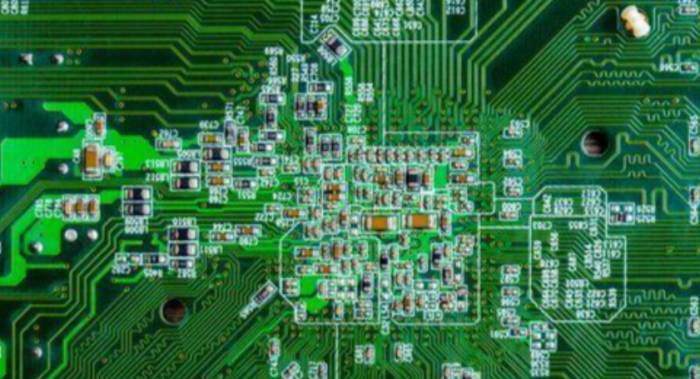In a set of data officially released by Taiwan, we observe that Taiwan's exports in June of this year have astonishingly plummeted by 23.4%. This is not a new development, as the past 10 months have consistently seen negative growth. It appears that this is not the end either, as the multiple factors affecting the export downturn continue unabated.
The last time Taiwan performed this poorly was traced back to the global subprime mortgage crisis that ravaged the world in 2008. Without a doubt, this time it has set the record for the largest decline in the past 14 years.
01
Among Taiwan's export products, electronic products dominated by semiconductors account for an excessively high proportion. Therefore, any disturbance in the chip industry can lead to a significant reduction in Taiwan's exports. Since the United States introduced the CHIPS Act in the second half of last year, the previously globalized chip industry chain has shown an increasingly obvious fragmented situation, which has severely impacted Taiwan's electronic product exports.
Chips are hailed as the cornerstone of modern industry and are indispensable core components in the manufacturing of electronic products. The division of labor in the global chip industry chain has become increasingly complex, and the interdependence has grown tighter. However, after the U.S. government introduced the CHIPS Act, the chip supply chains of some countries and regions have been greatly affected, including Taiwan.
Taiwan is one of the most important chip manufacturing bases globally, with many well-known chip manufacturers having production bases in Taiwan. Nevertheless, the fragmentation of the upstream and downstream links in the chip industry chain has resulted in a significant impact on the production and exports of Taiwan's chip manufacturers.It is quite evident that this enterprise hailing from Taiwan, China, wishes to no longer be at the mercy of the United States' whims.
In fact, even without the semiconductor restrictions, the continuous interest rate hikes in Europe and America have led to a slowdown in economic growth and a decrease in demand, posing significant challenges for Taiwan's export trade.

In another set of data, Taiwan's chip exports had already plummeted to just $12.6 billion in June of this year, with a staggering decline of 20.8%, marking the largest drop in nearly 14 years.
Undoubtedly, this is a negative impact brought about to some extent by the interest rate hike policies of Europe and America, especially for export-oriented economies, which face a series of challenges and difficulties.
Taiwan's economic growth largely depends on foreign trade.
However, as developed economies like Europe and America raise interest rates, their economic growth slows down, demand decreases, and this has a significant impact on Taiwan's export trade.
Due to the interconnectivity of the global economy, a slowdown in economic growth in Europe and America will also lead to a slowdown in other regions, further compressing Taiwan's export market.
In addition, interest rate hikes in Europe and America will also lead to adjustments in global capital flows. With the implementation of interest rate hike policies, the capital markets of developed countries like Europe and America will become more attractive for capital inflow, while other regional markets may face pressure for capital outflow. This will also lead to instability in the foreign exchange markets of regions like Taiwan, thereby bringing more difficulties to export trade.